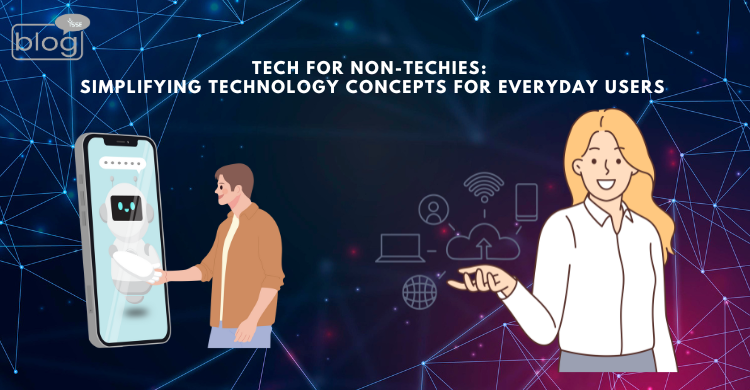Technology is no longer the exclusive domain of engineers or IT specialists. In today’s digital age, we need technology in every aspect of our lives. From handy smartphones to smart homes, our lives have a great impact on technology. Understanding technology has become essential for success and efficiency. However, many people feel overwhelmed by the complexity and jargon of using technology. That’s why the concept of “tech for non-techies” exists to make the complex concept accessible to everyone.
Tech literacy is crucial. In this fast-growing world, digital transformation is reshaping industries. Terms like “cloud computing,” “machine learning,” and “blockchain” can sound intimidating. For entrepreneurs, scientists, and IT specialists, the usage of technology for their work-life is different. Despite its importance, many normal people shy away from technology due to a lack of understanding.
Understanding the basics
Before we go into the technicalities, let’s define some basic terms:
- Software and Hardware: Software is the intangible applications that help the hardware run, like the operating system, Windows, macOS, Linux, and software applications, Microsoft Word, and Google Chrome. Hardware is the physical components of a computer system, like a keyboard, monitor, mouse, and CPU.
- The Internet: a global network of computers that allow us to communicate and exchange information.
Breaking down complex concepts and sharing
Cloud Storage: Cloud storage is a model of computer storage in which we can store files online securely, making them accessible from anywhere with an internet connection. Services like Google Drive and Dropbox.
Smart Assistance: Smart assistance is designed to respond to users’ commands through voice or text interactions. Popular examples are Amazon, Alexa, Apple Siri, Google Assistant, and Microsoft Cortana. They perform a wide range of functions, like smart home controlling, managing schedules, providing information, and answering questions. Smart assistants have a broad range of applications across different sectors, like Home automation, personal productivity, customer service, healthcare, education, etc.
Blockchain: Blockchain is a decentralized digital ledger that records transactions across many computers so that the registered transaction can not be altered retroactively. This allows the participants to verify and audit transactions independently and relatively inexpensively. Picturing it as a public library where everyone can see the books, but once a book is added, it cannot be removed or changed.
Artificial Intelligence (AI): AI is the development of computer systems that can perform tasks that typically require human intelligence. Almost every industry reshapes how we interact with technology in our daily lives using artificial intelligence (AI). From healthcare to finance, AI is everywhere. Like health, finance, retail, e-commerce, transportation, manufacturing, education, agriculture, and customer service.
Technology is not hard to understand anymore for common folks like us.
Technology doesn’t require a degree. We just need to adapt the learning of technology in our day-to-day lives. Practical applications in our everyday lives can simplify the complex concept of technology. In the end, “Tech for non-techies” is not just learning how to use technology; it’s about potential and adopting technology for personal and professional growth.
To read more blogs like this, click here
Writer,
Nayela Binte Azad
Intern
Content Writing Department
YSSE.

